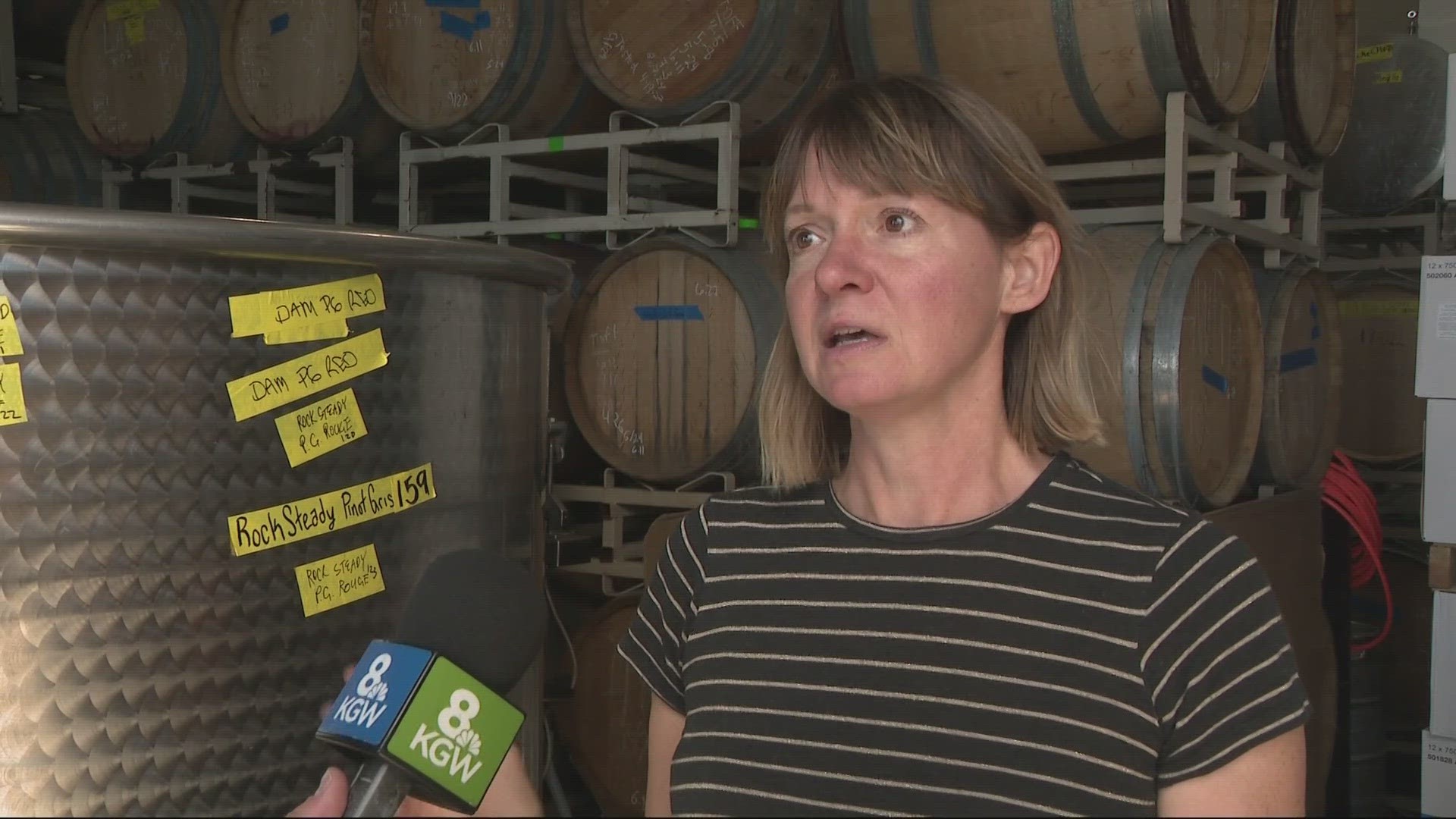WHITE SALMON, Wash. —
The tasting room and patio at Loop de Loop Wines were full on Sunday, July 2, when one of the customers noticed a whiff of smoke coming up from the Columbia River Gorge.
Julia Bailey-Gulstine, who owns the winery outside of White Salmon with her husband, said there are small fires in the area sometimes, and she took note, but wasn’t too concerned.
“In no time, the plume of smoke was pretty serious,” she said. “I just happened to glance at my phone and saw that 10 or 15 minutes prior we had gotten an evacuation notice.”
Bailey-Gulstine sprang into action, ushering the guests to safety, collecting the propane tanks from a grill and forklift to store them safely and moving anything flammable away from the building.
And then they fled, finding refuge at a family member’s home nearby. With fire crews announcing the blaze was 80% contained and evacuation orders freshly lifted, Bailey-Gulstine returned Monday, grateful that their property had been spared, but wary of a future where climate change promises to bring more scenarios like the one she faced as the Tunnel 5 fire burned within a quarter-mile of the vineyard.
“We’re super happy that it's still here and just amazed by the work the firefighters were able to do to save us all,” she said. “This wasn’t something we had considered that would affect us at least in the Willamette Valley until 2020.”
That was the year the couple made the move from Portland to the vineyard, 10-acres of vines off of Cook Underwood Road on the Washington side of the Columbia River Gorge, featuring panoramic views of the gorge and Mt. Hood.
“We had sold our house in Portland to buy this property and I started with nothing,”she said.
The soil is rich and the elevation is just right for Bailey-Gulstine's favorite types of wine: lower in alcohol than typical American wines and higher in acid.
They didn’t have much, and they worked the fields themselves that year by hand with the help of a few friends. They were anticipating a good harvest.


Then the 2020 Labor Day fires erupted, blanketing the entire region in smoke. Bailey-Gulstine said the Air Quality Index hovered near 800, well into the hazardous category, for several days.
At one point, she strapped a respirator and went out to walk the rows of grapes.
“I just stood in the vineyard because you want to do something, but there’s nothing to be done,” she said.
Compounds in wildfire smoke can bind with the sugars in grapes and taint the flavor of wine. Almost all of Bailey-Gulstine's 2020 harvest was ruined, with the wine tasting somewhere between a campfire and an ashtray.
There were some harrowing moments over the last week. Bailey-Gulstine could see her vineyard from where she evacuated and watched as the fire approached.
“It looked like the whole mountain was on fire. It didn’t look good,” she said. “We really built this from nothing and to think we might have lost it was really, really scary.”
For all the trauma and damage done by the Tunnel 5 fire, there was at least one silver lining for Bailey-Gulstine: it happened early enough in the growing season that the grapes hadn’t tainted by the smoke.
“We’re before the point in the phenolic development of the grapevines that they accumulate sugar,” she said.
But the Tunnel 5 fire will not be the last one to bring flames to the gorge and 2020 will not be the last year to see widespread wildfire smoke. Bailey-Gulstine said she knows the future will be different and just holds out faith that there will be more good years than bad.
“We are acutely aware that this is probably our new reality, and we’ll probably have, I hope, just a couple bad vintages every decade,” she said.

